|
J. Edgar Hoover’s FBI had an abnormal fascination with the life of John Ciardi, a poet and Rutgers University professor; agents started out investigating him on the grounds he was a Communist but continued simply because he was a writer.
Adapted from The STAR-LEDGER, Newark, NJ Sunday, July 20, 1997, Perspective Section, page 1 |


|
The FBI files of the poet John CIARDI |


|
Copyright 1997 William P. Barrett By his death on Easter Day 1986, John Ciardi had become one of the country's best-known poets. A long-time resident of Metuchen, NJ, the 69-year-old Ciardi (pronounced CHAR-dee) had fashioned a distinguished literary career: hundreds of poems, much-noted English translations of Dante; professorships at Rutgers and Harvard; 21 years as the Saturday Review of Literature's poetry editor; and occasional television host. Regular essays on National Public Radio, ``Word in Your Ear,'' and read in his resonant bass voice, attracted a national audience. Among his most avid followers over the years: agents of the Federal Bureau of Investigation. Informed—inaccurately—he was a Communist or a sympathizer, the bureau closely tracked him for a quarter-century. At various times agents monitored his home and mail, watched him on the street, telephoned his family under pretexts, obtained health records and falsely described his politics. FBI Director J. Edgar Hoover personally earmarked Ciardi for possible arrest because he was a writer. This is contained in Ciardi's 170-page FBI file—No. 100-17136—which this author obtained under the Freedom of Information Act after Ciardi's death. Until now, the file hasn't been made public. However, in 1987 this author visited Ciardi's widow, Judith, at her Metuchen home, where they had raised three children, gave her a copy of the file and noted her comments. ``May Hoover roast in his grave!'' exclaimed Judith, who would die in 1992. ``John signed a few petitions, but he was as apolitical as one could be in the last several decades of his life. Why, I was a member of the League of Women Voters, so I believed in voting. But I had to tell him who to vote for. ``Anyone who read all his poetry would have seen he had a great love for this country, and none at all for countries restricting freedom of speech.'' By FBI standards, Ciardi's is not a massive file; some other honest individuals have dossiers running thousands of pages. Still, it's considerable paper for one who was never charged with any crime and who was hardly a major object of public interest. And it showed the anti-intellectualism that permeated the bureau under Hoover's 48-year-long tenure. In Washington, an FBI spokesperson, Linda Kloss, said the agency would continue its longstanding policy of not commenting on release of its records. ``The files speak for themselves,’’ she said. Born 1916 in Boston, John Anthony Ciardi grew up in suburban Medford. By high school he was demonstrating a literary flair. After getting degrees from hometown Tufts College and the University of Michigan, he captured the prestigious $1,200 Avery Hopwood Award for poetry—his first major recognition. There's no living in writing poetry, so in 1940 Ciardi became an English instructor at the University of Kansas City. That's where he caught the FBI's eye, apparently because of information from the Kansas City Police Department. ``Believed to be interested in Bund and to have stated there is no longer freedom of speech and press in United States,'' an FBI agent wrote on March 27, 1941. One student reported he ``was very Communistic in his attitude.'' This informant also said she once saw on a blackboard in Ciardi's classroom ``a notice of a Bund meeting to be held somewhere in the vicinity of 58th and Harrison.'' What ensued: a two-year investigation eventually labeled ``custodial detention.'' Given World War II and Ciardi's Italian heritage, this interest was understandable, at least initially. But extensive interviews revealed little derogatory information. The Bund notice apparently went uninvestigated, perhaps because, as one memo amusingly put it, ``investigation seems to indicate that the subject ... has an Italian background rather than German.'' Agents in Kansas City and Boston did find four informants who said Ciardi believed in Communism. These sources, however, couldn't name even one political activity Ciardi had participated in, ``subversive'' or otherwise. Meanwhile, perhaps a dozen other persons saw things quite differently. Typical comments: ``Entirely loyal to this country,'' ``an individual and not a radical,'' ``a good citizen in every respect.'' Asked to watch the addresses on mail to and from Ciardi, who still lived part-time in Medford, the local post office reported ``nothing of a subversive tendency.'' One agent actually read Homeward to America, Ciardi's just-published first poetry book. His review: ``Included therein are many poems which heralded a true love for liberty and the democratic way of life'' and no verses indicating ``unpatriotic feelings or tendencies.'' (Remarkably, one poem is entitled, ``To One `Investigated' by the Last Senate Committee, or the Next.'') On January 6, 1943, the Kansas City office closed the case: ``Review of file fails to disclose Subject is engaged in any activities considered inimical to the internal security of the United States.'' This conclusion would go unmentioned in future reports. By this time, Ciardi had entered the Army Air Corps and Flight Navigation School in Louisiana. According to Army records in the file, the military at some point also probed his background. Investigators discovered most fellow cadets regarded him highly. Using Kansas City police records to plow the same ground as the FBI, Army investigators discovered a professor who had told the FBI that Ciardi was a ``self-confessed Communist'' had never met him. That Bund blackboard notice? The informing student now said it wasn't in Ciardi's handwriting and that Ciardi hadn't commented upon it in class or even seemed aware of it. Clearly, the Army was more diligent than the FBI. On October 25, 1943, the Army bowed out, saying the inquiry ``neither proves nor disproves'' Ciardi espoused subversive beliefs. By then he had flunked Flight Navigation School. But he later became an aerial gunner aboard B-29 bombers—winning the Air Medal and Oak Leaf Cluster. Post-war, Ciardi resumed teaching in Kansas City, where he met and married Judith, a journalism teacher. He then joined Harvard's English department. In 1948 the FBI watched Ciardi again after he publicly supported the presidential candidacy of former Vice President Henry A. Wallace on the very-liberal Progressive Party ticket. ``This investigative file has been reopened to further identify the subject and his current interests,'' the FBI office in Boston wrote on May 27, 1948. Agents attended his speeches—reporting Ciardi said he wasn't a Communist but a believer in free speech. But after Communist Party informants said Ciardi was unknown to them, the probe was shut down. Judith Ciardi said her husband grew disenchanted with Wallace. ``John felt their view of the world was too naive,'' she recalled, adding the experience soured him on politics. The FBI never realized this change of heart. In 1950, Ciardi applied for a Federal Government fellowship to study in Italy. The State Department, which controlled the grants, asked the FBI for whatever it had on Ciardi. The agency obliged by sending over some of the reports from the 1941-43 and 1948 investigations. It didn't provide the wartime reports in which everyone interviewed attested to his loyalty or the report clearing him of subversive activity. The fellowship went elsewhere. ``John always felt the FBI had a hand in that, but we didn't have any evidence,'' said Judith. ``Now we know. We went abroad anyway, but at our own expense. We sure could have used the money.'' In 1954 Ciardi moved to New Jersey, taking a job as an English professor at Rutgers College in New Brunswick. He settled in Metuchen, a leafy suburb 25 miles southwest of New York City. The responsibility for watching him fell to the FBI office in Newark, NJ. In 1956 these sleuths, who had labeled Ciardi a ``Security Matter - C'' (for Communist), pondered including him on the Security Index. This was a hush-hush list of thousands of persons subject to immediate, automatic arrest during some national crisis. Agents returned to the streets. Much in these reports has been blacked on ``national security grounds.'' But someone, most likely at Rutgers, provided Ciardi's Metuchen address and his work history plus his Social Security number. Conclusion: ``The subject's activities do not warrant his inclusion on the Security Index.'' But monitoring continued. On January 21, 1959, an agent ``observed'' him at an undisclosed location and provided a physical description including his eye color (``brown'') and complexion (``ruddy''). By now the reports in Ciardi's files were being stamped ``SECRET'' instead of merely ``CONFIDENTIAL.'' On June 14, 1961, the FBI office in Newark recommended Ciardi be put on ``Section A'' of the Reserve Security Index, a sort of second-tier status below the full Index itself indicating he was considered slightly less dangerous. Some of the reasons stated in an accompanying memo—Ciardi's alleged Communistic beliefs, the blackboard Bund notice—had already been contradicted by the FBI's own informants and files. But the real reason might have been the last one: ``Subject, in the past, has in speeches been critical of the FBI and of the FBI's security investigations.'' Newark started a new round of checks. Someone, again probably at Rutgers, provided his residence, employment, and, for the first time, his medical records (``no information indicating the subject to be in other than good health''). But after party informants again professed ignorance of Ciardi, Newark recommended he be downgraded from Section A to Section B, reflecting a slightly less sensitive case. Two weeks later, though, this was overturned—by none other than Hoover himself. ``In view of the fact that subject is going to be engaged in writing,'' Hoover wrote Newark, ``he still qualifies for inclusion in Section A.'' Newark periodically updated Ciardi's Reserve Index file card, noting when he left Rutgers, when he joined the Saturday Review, when he hosted a show on CBS—and when he became involved in a civil rights group critical of the FBI. Once, an agent re-verified Ciardi's Saturday Review affiliation by examining a copy of the magazine ``at the Iselin, New Jersey, Library'' and locating his name on the masthead. The bureau wrote it wasn't contacting Ciardi personally and identifying themselves. ``Because ... of his previous critical attitude coupled with his present employment,'' an agent wrote, ``an interview could prove embarrassing to the Bureau.'' However, to verify whereabouts, agents sometimes telephoned Ciardi or his wife using a pretext. In April 1965 Lyndon Johnson was planning to invite Ciardi to a White House dinner. For security screening, the FBI sent over a one-page dossier. It was utterly scurrilous. Besides repeating the ``self-confessed Communist'' quote no informant had heard, the report didn't bother to mention every single FBI informant inside the Communist Party had denied Ciardi was a party member, that many people heralded his loyalty, that he had wartime decorations, and that he was a big FBI critic. This time, the FBI failed. ``We went to the dinner,'' Judith Ciardi said, smiling. In 1970 the FBI finally closed Operation Ciardi. The Metuchen poet outlasted the Security Index, which was discontinued in 1971, and Hoover, who died the following year. ————— William P. Barrett, a veteran journalist for national publications, lives in Las Vegas. |